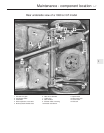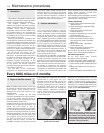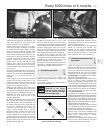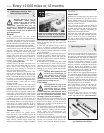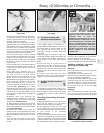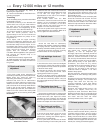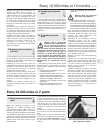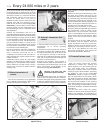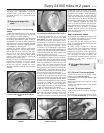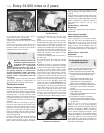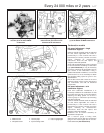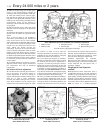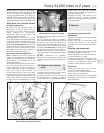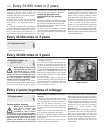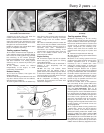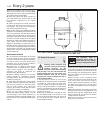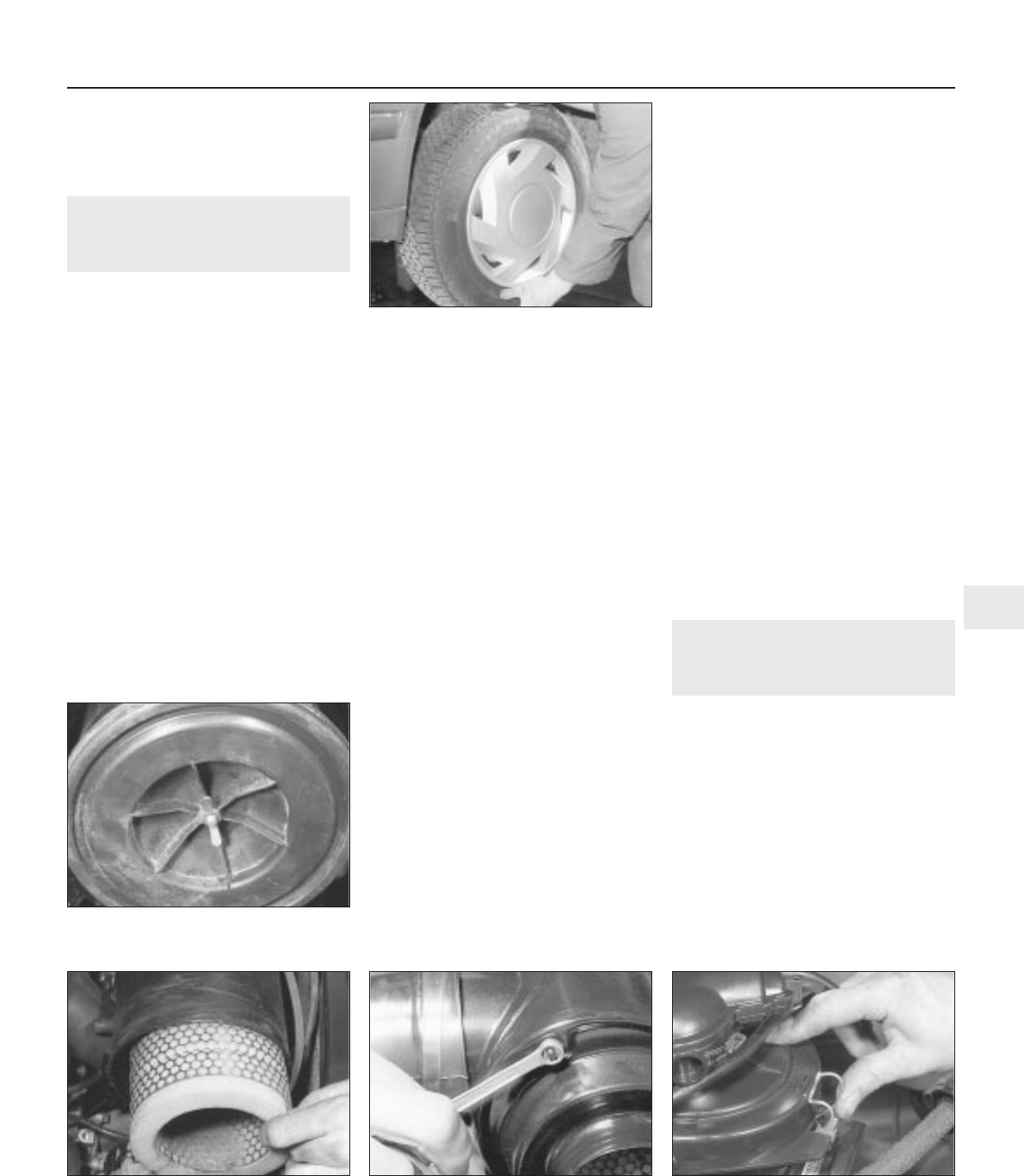
the inner joint and attempting to rotate the
driveshaft. Any appreciable movement
indicates wear in the joints, wear in the
driveshaft splines, or a loose driveshaft
retaining nut.
25 Steering and suspension
check
2
Front suspension and steering
check
1 Apply the handbrake then jack up the front
of the vehicle and support it on axle stands
(see “Jacking and vehicle support”).
2 Visually inspect the balljoint dust covers and
the steering gear bellows for splits, chafing or
deterioration. Any wear of these components
will cause loss of lubricant, together with dirt
and water entry, resulting in rapid deterioration
of the balljoints or steering gear.
3 Check the power steering fluid hoses
(where applicable) for chafing or deterioration,
and the pipe and hose unions for fluid leaks.
Also check for signs of fluid leakage under
pressure from the steering gear rubber
bellows, which would indicate failed fluid
seals within the steering gear.
4 Check for signs of fluid leakage around the
suspension strut body, or from the rubber
boot around the piston rod (where fitted).
Should any fluid be noticed, the shock
absorber is defective internally, and renewal is
necessary.
5 Grasp the roadwheel at the 12 o’clock and
6 o’clock positions, and try to rock it (see
illustration). Very slight free play may be felt,
but if the movement is appreciable, further
investigation is necessary to determine the
source. Continue rocking the wheel while an
assistant depresses the footbrake. If the
movement is now eliminated or significantly
reduced, it is likely that the wheel bearings are
at fault. If the free play is still evident with the
footbrake depressed, then there is wear in the
suspension joints or mountings.
6 Now grasp the wheel at the 9 o’clock and 3
o’clock positions, and try to rock it as before.
Any movement felt now may again be caused
by wear in the wheel bearings or the steering
track rod end balljoints. If the outer track rod
end is worn, the visual movement will be
obvious. If the inner joint is suspect, it can be
felt by placing a hand over the rack-and-pinion
rubber bellows, and gripping the track rod. If
the wheel is now rocked, movement will be felt
at the inner joint if wear has taken place.
7 Using a large screwdriver or flat bar, check
for wear in the suspension mounting bushes
by levering between the relevant suspension
component and its attachment point. Some
movement is to be expected as the mountings
are made of rubber, but excessive wear
should be obvious. Also check the condition
of any visible rubber bushes, looking for splits,
cracks or contamination of the rubber.
8 With the vehicle standing on its wheels,
have an assistant turn the steering wheel
back-and-forth, about an eighth of a turn each
way. There should be very little, if any, lost
movement between the steering wheel and
roadwheels. If this is not the case, closely
observe the joints and mountings previously
described, but in addition, check the steering
column universal joints for wear, and also
check the rack-and-pinion steering gear itself.
9 The efficiency of the shock absorber may
be checked by bouncing the car at each front
corner. Generally speaking, the body will
return to its normal position and stop after
being depressed. If it rises and returns on a
rebound, the shock absorber is probably
suspect. Examine also the shock absorber
upper and lower mountings for any signs of
wear or fluid leakage.
Rear suspension check
10 Chock the front wheels, then raise the rear
of the vehicle and support it on axle stands.
(see “Jacking and vehicle support”).
11 Check the rear hub bearings for wear,
using the method described for the front hub
bearings (paragraph 4).
12 Using a large screwdriver or flat bar,
check for wear in the suspension mounting
bushes by levering between the relevant
suspension component and its attachment
point. Some movement is to be expected as
the mountings are made of rubber, but
excessive wear should be obvious. Check the
condition of the shock absorbers as
described previously.
26 Air cleaner filter element
renewal
1
XV, XW and XY series engines
1 Unscrew the wing nut on the air cleaner
casing end-face (see illustration).
2 Withdraw the end cover with element (see
illustration).
3 Discard the element and wipe the casing
interior clean.
4 Fit the new element and the cover, tighten
the wing nut.
XU and TU series engines
4 Disconnect the air duct from the end of the
air cleaner.
5 Unscrew the nuts and remove the end (or
top) cover (see illustrations). On some types
Every 24 000 miles or 2 years 1•15
1
25.5 Check for wear in the hub bearings
by grasping the wheel and trying to rock it
26.1 On XV, XW and XY series engines,
unscrew the wing nut on the air cleaner
cover . . .
26.2 . . . and remove the cover and filter
element
26.5a On XU and TU series engines,
unscrew the nuts . . .
26.5b . . . or release the spring clips . . .



